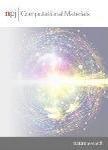Machine-learning atomic simulation for heterogeneous catalysis
作者机构:Collaborative Innovation Center of Chemistry for Energy Materials(iChEM)Shanghai Key Laboratory of Molecular Catalysis and Innovative MaterialsKey Laboratory of Computational Physical ScienceDepartment of ChemistryFudan UniversityShanghai 200433China Shanghai Qi Zhi InstitutionShanghai 200030China Key Laboratory of Synthetic and Self-Assembly Chemistry for Organic Functional MoleculesShanghai Institute of Organic ChemistryChinese Academy of SciencesShanghai 200032China
出 版 物:《npj Computational Materials》 (计算材料学(英文))
年 卷 期:2023年第9卷第1期
页 面:2333-2341页
核心收录:
学科分类:081704[工学-应用化学] 07[理学] 070304[理学-物理化学(含∶化学物理)] 08[工学] 0817[工学-化学工程与技术] 0703[理学-化学] 0702[理学-物理学] 0812[工学-计算机科学与技术(可授工学、理学学位)]
基 金:This work received financial support from the National Key Research and Development Program of China(2018YFA0208600) the National Science Founda-tion of China(12188101,22033003,91945301,91745201,92145302,22122301 and 92061112) Fundamental Research Funds for the Central Universities(20720220011) the Tencent Foundation for XPLORER PRIZE
摘 要:Heterogeneous catalysis is at the heart of *** theoretical methods based on machine learning(ML)techniques that emerged in recent years provide a new avenue to disclose the structures and reaction in complex catalytic *** we review briefly the history of atomic simulations in catalysis and then focus on the recent trend shifting toward ML potential *** advanced methods developed by our group are outlined to illustrate how complex structures and reaction networks can be resolved using the ML potential in combination with efficient global optimization *** future of atomic simulation in catalysis is outlooked.



